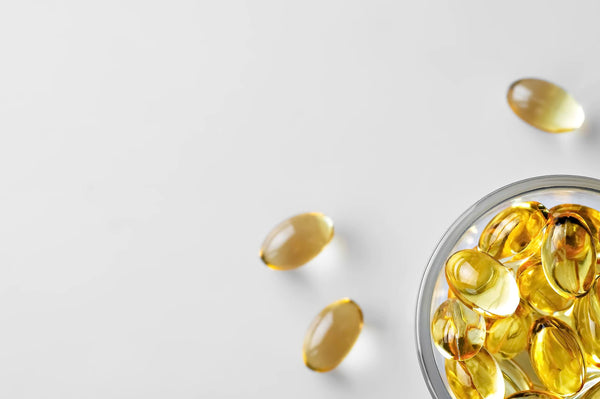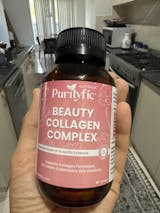
Here Are 5 Benefits Of Vitamin E For Children

The benefits of vitamin E for children are no less important than other types of vitamins. One of the benefits of vitamin E for your little one is as an antioxidant that can support cell growth and nerve and brain development.
Read: See These 7 Benefits of Vitamin E for Fertility
That is, the benefits of vitamin E are not only synonymous with skin health and beauty. That is why, the need for vitamin E must be met from an early age, even since the little one is still in the womb.
You can actually get the benefits of vitamin E from everyday foods, such as olive oil, palm oil, vegetables, fruits, and nuts.
The need for vitamin E can be fulfilled by consuming food sources high in vitamin E. However, in some conditions, there are children who need additional vitamin E in the form of supplements.
What happens if people are deficient in vitamin E?
Giving vitamin E supplements is usually for people who lack vitamin E in large quantities and must be in accordance with the doctor's advice.
When the body lacks vitamin E, muscle function will weaken and coordination of body movements will be disrupted. In addition, some other symptoms that can appear when the body lacks vitamin E, include:
- Slow body reflex
- Impaired coordination of body movements
- Visual disturbance
- Too often tingling or numbness in certain body parts
- Very pale and the body gets tired more easily
What are the Benefits of Vitamin E for Children?
As already mentioned, the benefits of vitamin E are usually identical for the skin. In fact, this one vitamin also has various benefits for your little one. Here are the benefits of vitamin E for children:
Boost immunity
The benefits of vitamin E are important for the baby's immune system. Vitamin E works by protecting the membrane (outermost layer) of immune cells. In this cell membrane, there are fatty acids that are easily damaged by free radicals. Well, the benefits of vitamin E act as an antioxidant to fight these free radicals and protect cells to stay healthy. In immune cells, it is useful to increase immunity.
Improves hair and scalp health
Do you want your baby's scalp and hair to be healthy? So you need to get enough vitamin E intake properly. Because the antioxidant compounds in vitamin E can protect scalp cells and prevent hair damage. The benefits of vitamin E can help strengthen the fat layer found in scalp cells. That way, your little one's hair will be stronger and free from the risk of falling out.
Helps promote brain development
The development of the baby's brain begins when the mother is pregnant until after birth. Throughout this brain growth and development, of course, requires high amounts of specific fatty acids, such as DHA. One of the benefits of vitamin E is that it protects fatty acids to ensure healthy brain growth and development. That is why your little one needs a good intake of vitamin E and DHA.
Launching the official medicalnewstoday, in 2010 The Panel on Dietetic Products and Allergies from the European Food Safety Authority stated that the benefits of vitamin E also play a role in helping protect DHA, protein, and fat from damage in infants and children up to the age of 3. year. That is why one of the benefits of vitamin E is that it can help improve your little one's brain development.
Food Sources Rich in Vitamin E
After knowing the various benefits of vitamin E, then you should start meeting your little one's daily vitamin E needs appropriately. According to the 2019 Nutrition Adequacy Rate (RDA) from the Indonesian Ministry of Health, the amount of vitamin E intake for children aged 1-3 years is 6 micrograms (mcg) per day. Well, you can get the benefits of vitamin E from the following food sources:
Green vegetable
You can get vitamin E in several types of green vegetables, such as broccoli and spinach. Not only vitamin E, these two types of vegetables also contain vitamin A, vitamin C, vitamin K, calcium, and antioxidants.
Nuts
The benefits of vitamin E can also be obtained from several types of nuts, such as almonds and soybeans. Nuts also contain vitamin B complex, potassium, zinc (zinc), calcium, iron, and magnesium.
Grains
In addition to green vegetables and beans, whole grains also include foods that contain vitamin E. Some types of seeds that are a source of vitamin E are sunflower seeds and corn seeds. You can give these two types of seeds to your little one to be used as a healthy snack or processed into food that suits your little one's tastes.
Vegetable oil
Sources of vitamin E are also found in vegetable oils for cooking. The process of making this oil is done by extracting oil from certain nuts or seeds. Some types of vegetable oils contain the highest vitamin E, include wheat germ oil, sunflower oil, almond oil, hazelnut oil, and cottonseed oil.
Fruits
Avocados, mangoes, and kiwis are fruits that contain vitamin E which is good for your little one's health. In addition to vitamin E, these three types of fruit also contain other nutrients that are no less important, such as vitamin C, iron, calcium, magnesium, and so on.
Seafood
Some types of seafood also contain vitamin E, such as salmon, shrimp, and shellfish which can be processed into nutritious food for your little one. Not only that, but seafood is also a source of quality protein which is important for optimizing your little one's growth and development.







